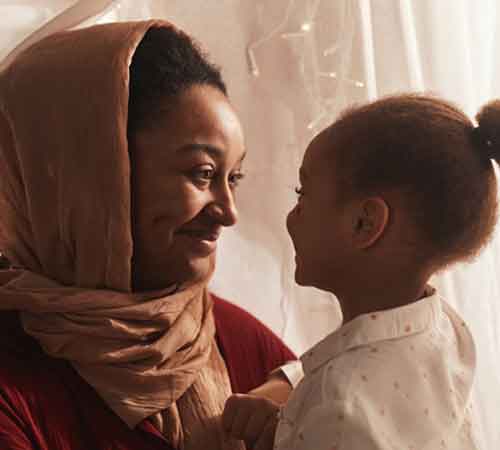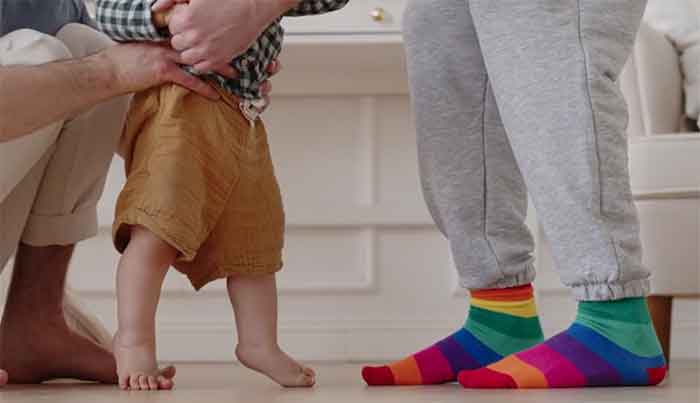As parents and caregivers, we’ve all been there – that moment when a child asks some awkward questions that leaves you momentarily stumped, blushing, or searching for the right words.
Kids are naturally curious about the world around them, and they don’t always filter their questions, leading to awkward but innocent inquiries.
Here are ten such awkward questions and how to answer them with sensitivity and age-appropriate information.
1. Why Do People Die?
This is one of such awkward questions that your kids could ask you.
Age 5+: Well, that’s a big question. People die when they get very old or very sick. It’s just a part of life, like how we all have a beginning, a middle, and an end.
Age 10+: Well, everyone and everything has a beginning, a middle, and an end. It’s a part of life’s cycle. People die when their bodies get very old or when they get very sick. But we focus on cherishing the time we have with our loved ones.
2. Where Do Babies Come From?
Age 5+: Babies grow inside their mommy’s tummy, and when they are ready, they are born. It’s a unique process that brings new life into the world.
Age 10+: Great question! When you’re older, we can have a detailed conversation about it. It’s a natural process and part of growing up.
3. Why Do You And Daddy Fight sometimes?
Age 5+: Sometimes grown-ups disagree, just like kids sometimes argue with friends. It’s important to talk, listen, and find solutions. We love each other, even when we argue.
Age: 10+: That’s a wise question.
Sometimes, grown-ups, like Mommy and Daddy, have disagreements because we have different opinions.
It’s a normal part of any relationship, even among friends.
We’re learning to communicate better and solve our problems because we love each other and want our family to be happy.
Like how you and your friends sometimes argue but still care about each other.
4. What Does That Word Mean? (Referring To A Swear Word)
Age 5+: Some words are not polite and can hurt people’s feelings. It’s better to use kind and respectful words.
Around 8+: Hmm, that’s not a nice word to use. We should always choose words that are kind and respectful.
Age 10+: That’s a word that some people use, but it’s not considered polite or respectful. It’s better not to use those words because they can hurt people’s feelings. Let’s focus on using kind and respectful language, which is more appropriate and shows consideration for others.
5. “Why Is That Person In A Wheelchair?”
Age 5+: Some people have difficulty walking, so they use a wheelchair to get around. We should treat everyone with kindness and respect, no matter their abilities.
6. “What’s That Smell?” (In Public)
Age 5+: Sometimes, different places have different smells. It’s okay to notice, but we should always be polite and not make others uncomfortable.”
7. “How Are Babies Made?”
Again, here is one the very awkward questions kids ask parents.
Age 5+: When you’re a bit older, we can talk more about this, but for now, just know that it involves a mommy and a daddy coming together to create a baby.
Age 10+: Great question! When you’re older, we can have a detailed conversation about it. It’s a natural process and part of growing up.
8. “Why Is That Man So Big/small?” (Referring To Someone’s Appearance)
Answer: People come in all shapes and sizes. It’s important to remember that it’s who we are on the inside that matters most, not how we look.
9. “What’s A Divorce?”
Answer: Divorce is when two married grown-ups decide they can’t live together anymore. It’s not the child’s fault; both parents still love and care for the child.
10. “What’s That Lady Doing In The Restroom?” (Referring To Menstruation)
Answer: Sometimes, women use the restroom for a specific reason related to their bodies. It’s a natural process that only women go through when they get a bit older. It’s a sign of good health.
Have You Read: How To Answer Difficult Questions Kids Ask
Answering these awkward questions with honesty, age-appropriate information, and sensitivity can help children better understand the world around them.
It also encourages open communication and trust between parents and kids.
Also, know that it’s okay to say, “I’m not sure; let’s find out together,” and use these moments as opportunities for learning and bonding.
These responses aim to provide clear yet sensitive answers based on the child’s age and understanding while maintaining a warm and reassuring tone.
Remember, the specific age and tone can vary depending on the child’s maturity and needs.
Find more interesting contents on parenting here.




